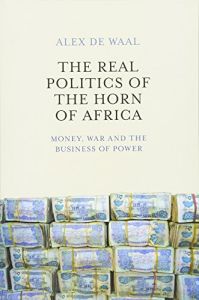
The Real Politics of the Horn of Africa
Money, War and the Business of Power
Recommendation
This study of the sometimes brutal politics in the Horn of Africa looks at the region’s startling body count from a new angle. Where outsiders see human rights violations and ethnic hatreds, researcher Alex de Waal sees a simple, if bloody, calculus: Human lives are little more than pawns in a larger game. Warlords attack government assets to stake their claims, and governments, in turn, massacre civilians in rebel-held territory as a straightforward statement of power. Not that de Waal excuses this sort of violence; he considers it barbaric. Yet his analysis helps make sense of the senseless. De Waal focuses his analysis on a few key nations in Africa, including Sudan, South Sudan and Somalia. He also shines a spotlight on Somaliland: a rare example of peace and political stability in the Horn of Africa – perhaps because its lack of commodities and tax revenues means there’s little opportunity for kleptocracy. While de Waal delivers an important new perspective on politics in the Horn of Africa, his writing style is sometimes clunky and inscrutable. He often adopts a distant, bureaucratic tone, only rarely offering examples and details describing life in the Horn of Africa. Despite these shortcomings, getAbstract recommends this insightful book to everyone interested in African politics.
Summary
About the Author
Alex de Waal is executive director of the World Peace Foundation and a research professor at Tufts University.







Comment on this summary